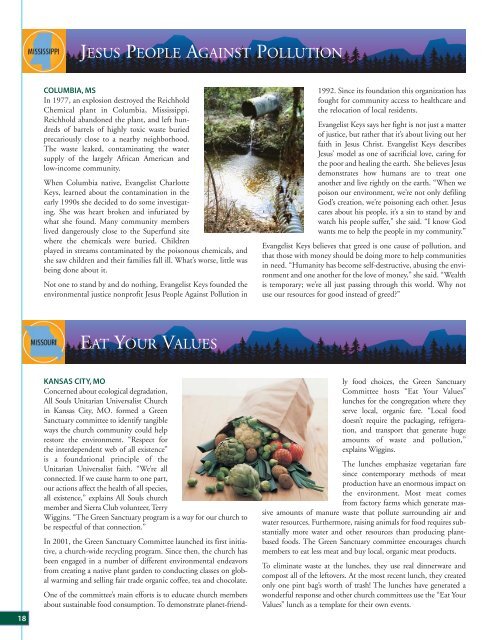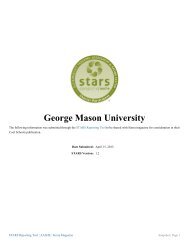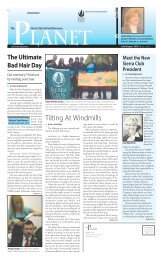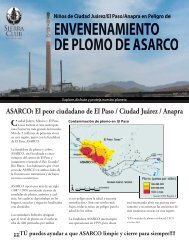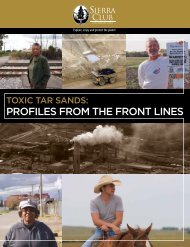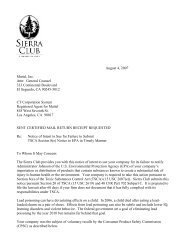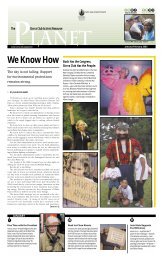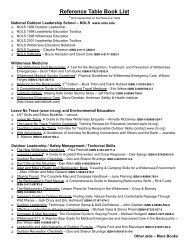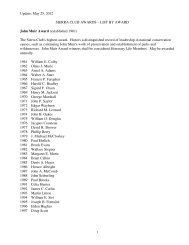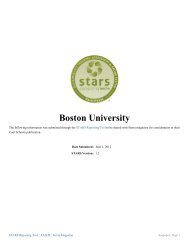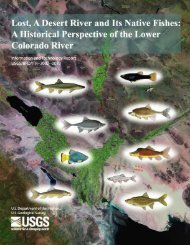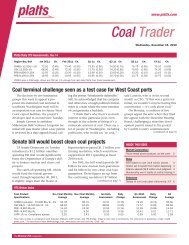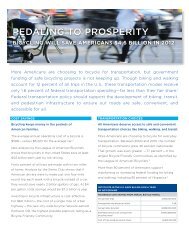FAITH IN ACTION - Sierra Club
FAITH IN ACTION - Sierra Club
FAITH IN ACTION - Sierra Club
You also want an ePaper? Increase the reach of your titles
YUMPU automatically turns print PDFs into web optimized ePapers that Google loves.
18<br />
JESUS PEOPLE AGA<strong>IN</strong>ST POLLUTION<br />
COLUMBIA, MS<br />
In 1977, an explosion destroyed the Reichhold<br />
Chemical plant in Columbia, Mississippi.<br />
Reichhold abandoned the plant, and left hundreds<br />
of barrels of highly toxic waste buried<br />
precariously close to a nearby neighborhood.<br />
The waste leaked, contaminating the water<br />
supply of the largely African American and<br />
low-income community.<br />
When Columbia native, Evangelist Charlotte<br />
Keys, learned about the contamination in the<br />
early 1990s she decided to do some investigating.<br />
She was heart broken and infuriated by<br />
what she found. Many community members<br />
lived dangerously close to the Superfund site<br />
where the chemicals were buried. Children<br />
played in streams contaminated by the poisonous chemicals, and<br />
she saw children and their families fall ill. What’s worse, little was<br />
being done about it.<br />
Not one to stand by and do nothing, Evangelist Keys founded the<br />
environmental justice nonprofit Jesus People Against Pollution in<br />
EAT YOUR VALUES<br />
KANSAS CITY, MO<br />
Concerned about ecological degradation,<br />
All Souls Unitarian Universalist Church<br />
in Kansas City, MO. formed a Green<br />
Sanctuary committee to identify tangible<br />
ways the church community could help<br />
restore the environment. “Respect for<br />
the interdependent web of all existence”<br />
is a foundational principle of the<br />
Unitarian Universalist faith. “We’re all<br />
connected. If we cause harm to one part,<br />
our actions affect the health of all species,<br />
all existence,” explains All Souls church<br />
member and <strong>Sierra</strong> <strong>Club</strong> volunteer, Terry<br />
Wiggins. “The Green Sanctuary program is a way for our church to<br />
be respectful of that connection.”<br />
In 2001, the Green Sanctuary Committee launched its first initiative,<br />
a church-wide recycling program. Since then, the church has<br />
been engaged in a number of different environmental endeavors<br />
from creating a native plant garden to conducting classes on global<br />
warming and selling fair trade organic coffee, tea and chocolate.<br />
One of the committee’s main efforts is to educate church members<br />
about sustainable food consumption. To demonstrate planet-friend-<br />
1992. Since its foundation this organization has<br />
fought for community access to healthcare and<br />
the relocation of local residents.<br />
Evangelist Keys says her fight is not just a matter<br />
of justice, but rather that it’s about living out her<br />
faith in Jesus Christ. Evangelist Keys describes<br />
Jesus’ model as one of sacrificial love, caring for<br />
the poor and healing the earth. She believes Jesus<br />
demonstrates how humans are to treat one<br />
another and live rightly on the earth. “When we<br />
poison our environment, we’re not only defiling<br />
God’s creation, we’re poisoning each other. Jesus<br />
cares about his people, it’s a sin to stand by and<br />
watch his people suffer,” she said. “I know God<br />
wants me to help the people in my community.”<br />
Evangelist Keys believes that greed is one cause of pollution, and<br />
that those with money should be doing more to help communities<br />
in need. “Humanity has become self-destructive, abusing the environment<br />
and one another for the love of money,” she said. “Wealth<br />
is temporary; we’re all just passing through this world. Why not<br />
use our resources for good instead of greed?”<br />
ly food choices, the Green Sanctuary<br />
Committee hosts “Eat Your Values”<br />
lunches for the congregation where they<br />
serve local, organic fare. “Local food<br />
doesn’t require the packaging, refrigeration,<br />
and transport that generate huge<br />
amounts of waste and pollution,”<br />
explains Wiggins.<br />
The lunches emphasize vegetarian fare<br />
since contemporary methods of meat<br />
production have an enormous impact on<br />
the environment. Most meat comes<br />
from factory farms which generate massive<br />
amounts of manure waste that pollute surrounding air and<br />
water resources. Furthermore, raising animals for food requires substantially<br />
more water and other resources than producing plantbased<br />
foods. The Green Sanctuary committee encourages church<br />
members to eat less meat and buy local, organic meat products.<br />
To eliminate waste at the lunches, they use real dinnerware and<br />
compost all of the leftovers. At the most recent lunch, they created<br />
only one pint bag’s worth of trash! The lunches have generated a<br />
wonderful response and other church committees use the “Eat Your<br />
Values” lunch as a template for their own events.


